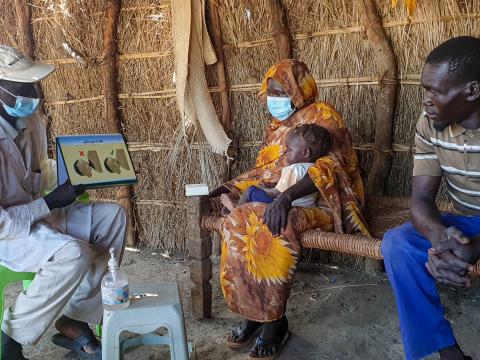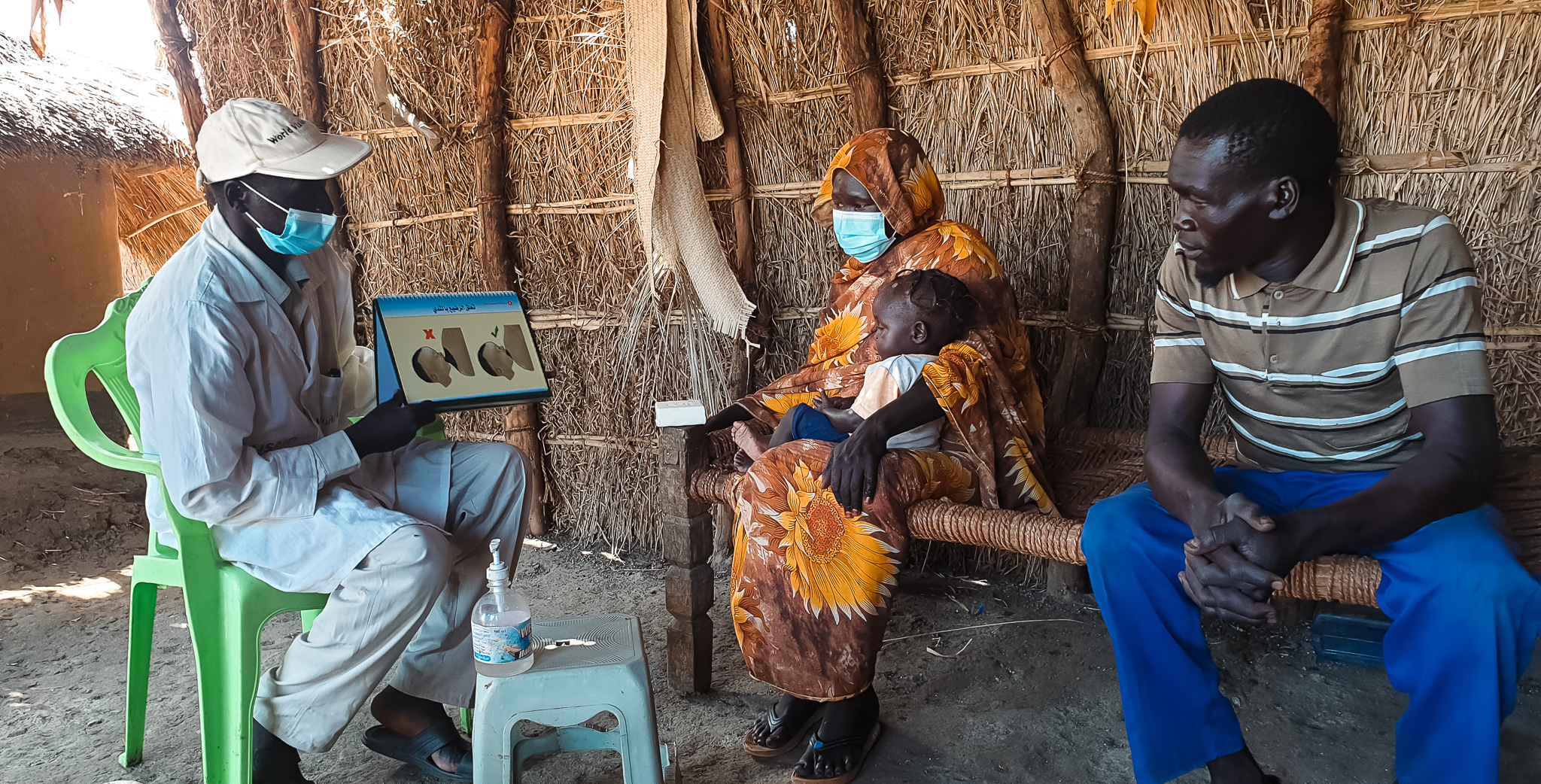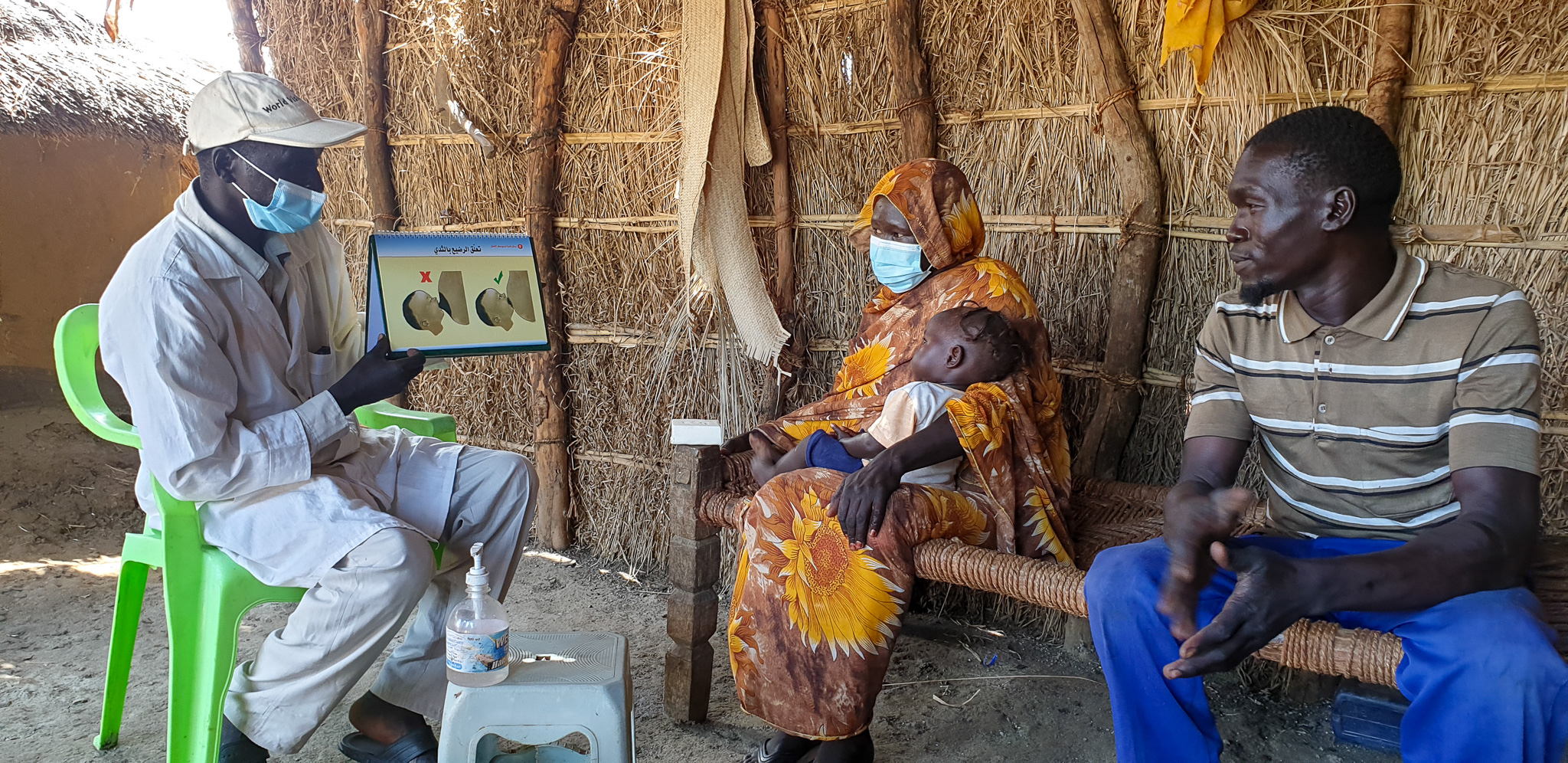Supporting Breastfeeding in Blue Nile Amidst Conflict through Fathers

The ongoing conflict in Sudan has created significant challenges in accessing and utilising health and nutrition services. Pregnant and lactating women and girls, along with their children under five years of age, have been most affected. Decision-making regarding health and nutrition services, commodities, and food at the household level has increasingly shifted to the disadvantage of these vulnerable populations. This conflict has therefore necessitated a more gender-inclusive approach to household mobilisation for appropriate care in Blue Nile.
Despite the conflict, with support from Bureau for Humanitarian Assistance (#BHA), efforts have been made to ensure that the population is mobilised to provide #ENOUGH nutrition knowledge, skills, and practices at the household level. Through the Father-to-Father (F2F) approach, the gender and negotiation gap is being addressed as fathers are equipped with information about their role in maternal, infant, and young child nutrition during emergencies, their role in ensuring the pregnancy and childbirth process, and their role in essential newborn care and child growth and development. Through this initiative, fathers are being supported to become champions for their families.
Al-Dabi, a father and community leader from Moklam District, was identified as a potential lead father and subsequently participated in the Father-to-Father training facilitated by World Vision in the area. After the training, Al-Dabi was commissioned to return to his community and establish a group of 15 fathers, where he now leads counselling, raises awareness, and mobilises optimal breastfeeding practices, including the early initiation of breastfeeding within the first hour after birth and the importance of continuous breastfeeding. He also emphasises the crucial role fathers play in supporting women to breastfeed. The sessions educate fathers on how to create a conducive environment for their spouses and newborns. Lead fathers like Al-Dabi are tasked with conducting home visits to provide individual counselling and carry out Mid-Upper Arm Circumference (MUAC) screenings for both mothers and children under five to detect early cases of malnutrition.
Lead fathers like Al-Dabi are tasked with conducting home visits to provide individual counselling and carry out Mid-Upper Arm Circumference (MUAC) screenings for both mothers and children under five to detect early cases of malnutrition.
I recently visited Farjallah and his wife at their home. Sabt has a 3-month-old baby girl called Zainab. Zainab was given water during the first week after birth, and the mother noticed that the baby refused breastfeeding. The baby’s weight was dangerously low, so I immediately advised the parents not to give the child food or water for the first six months, stressing the importance of increasing the number of breastfeeding sessions. I urged the father to support the mother in taking Zainab to the stabilisation centre for further care,” said Al-Dabi.

After a week of treatment, a notable appetite for breastfeeding from the baby was observed. “Al-Dabi has guided us in doing the right thing to rescue Zainab,” said Farjallah, expressing his appreciation for Al-Dabi's intervention.
The Father-to-Father initiative offers comprehensive IYCF-E services to the population in the catchment area, with Lead Fathers playing an active role in influencing their peers to engage in maternal and child health care at home. To achieve this, the Lead Fathers facilitate discussions with other men at the household level, reducing the negotiation women would otherwise need to request support. These Lead Fathers have been trained in group dynamics and essential actions to take during group sessions, in addition to offering support at the household level.
With this intervention and support from BHA, World Vision has:
- Supported the training of 50 Lead Fathers and helped them form groups with a membership of 750 fathers.
- Established 39 groups in vulnerable host communities and 11 strategically located in Internally Displaced People (IDP) sites.
- Supported 4,321 households, ensuring that pregnant and lactating women and girls receive the support they need to nurture their children under the age of five.
Engaged fathers in early active case finding for malnutrition through mass MUAC assessments, reaching 3,543 children under five years and 778 pregnant and lactating women and girls.
World Vision is partnering with BHA-USAID in Blue Nile to provide assistance to vulnerable local communities, returnees, and IDPs from other conflict-affected regions in Sudan. With this support, World Vision remains committed to providing accessible and high-quality health care and infant and young child feeding in emergencies, ensuring that vulnerable people receive the care they require during Sudan's crisis.